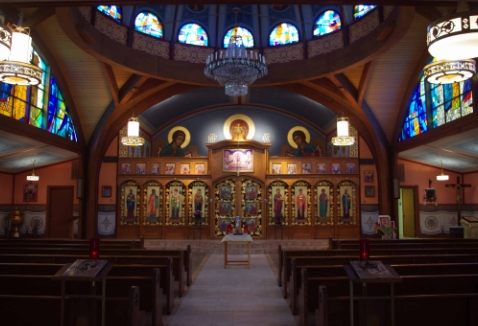The Byzantine Catholic Church is a branch of the Catholic Church that follows the Byzantine Rite, which traces its roots back to the earliest days of Christianity.
Rich history and traditions
The history of the Byzantine Catholic Church dates back to the time of the Byzantine Empire, when Christianity flourished in the Eastern Roman Empire. The Byzantine Rite developed in the Eastern part of the Roman Empire, with its liturgy, traditions, and theological teachings influenced by the Greek-speaking culture of the region.
Byzantine liturgy
The Byzantine Catholic Church is known for its rich and vibrant liturgical traditions, including the use of icons, incense, and elaborate rituals in its worship services. The Byzantine liturgy is known for its beauty and reverence, with a focus on the mystical aspects of the faith.
Sacraments and spirituality
The Byzantine Catholic Church places a strong emphasis on the sacraments, particularly the Eucharist, which is considered the center of its spiritual life. The Byzantine Catholics believe in the real presence of Christ in the Eucharist, and they approach the sacrament with great reverence and devotion.
Icons and religious art
One of the most striking features of the Byzantine Catholic Church is its use of icons in its worship and devotional practices. Icons are considered to be windows to the divine, and they play a central role in Byzantine spirituality. The Byzantine Catholic Church has a rich tradition of iconography, with many beautiful examples of religious art produced over the centuries.
Eastern spirituality
The Byzantine Catholic Church also has a strong tradition of Eastern spirituality, which emphasizes prayer, fasting, and asceticism as a means of drawing closer to God. The Byzantine Catholics follow a liturgical calendar that is rich in feasts, fasts, and other holy days that help them to deepen their spiritual lives.
Overall, the Byzantine Catholic Church is a vibrant and diverse branch of the Catholic Church that has a rich history and a deep spiritual heritage. Its liturgical traditions, sacraments, icons, and spirituality all contribute to its unique identity and make it a valuable part of the wider Christian community.

